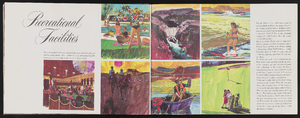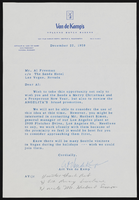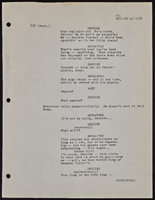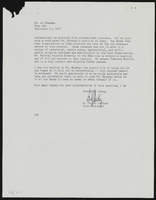Search the Special Collections and Archives Portal
Search Results
Tessa Marie Winkelmann oral history interview
Identifier
Abstract
Oral history interview with Tessa Marie Winkelmann conducted by Cecilia Winchell and Stefani Evans on October 21, 2022 for the Reflections: The Las Vegas Asian American and Pacific Islander Oral History Project. In this interview, Tessa Winkelmann recalls her transient childhood due to her father's job as a chef for Hyatt International which led to their family relocating to several places before they eventually landed in the Coachella Valley, California. Her mother, as a recent Filipino immigrant, stayed at home taking care of Winkelmann and her two siblings for a number of years before also beginning to work in sales at hotels. Winkelmann recalls her grandmother, who helped raise her and her siblings by cooking and taking care of them. She recalls living in a poorer part of Coachella Valley and having to attend school in a neighboring town without adequate transportation. Winkelmann attended the University of California, Irvine, where she majored in English and political science. She later attended San Francisco State University and the University of Illinois Urbana-Champaign for graduate school. Winkelmann discusses the themes of her research, touching on interracial relationships and their influence on colonial relations between the Philippines and the West. Throughout the interview, Winkelmann touches on topics regarding her identity, life in Las Vegas, and other aspects of her journey.
Archival Collection
Elizebeth Dewey Russell oral history interview
Identifier
Abstract
Oral history interview with Elizebeth Dewey Russell conducted by Claytee D. White on March 23, 2024 for the African Americans in Las Vegas: a Collaborative Oral History Project. In this interview, Russell talks about her mother, Ruth Bradshaw Dewey, a white woman, who taught at the Westside School (1949-1955), saw Josephine Baker at the El Rancho in 1952, attended the opening night of the Moulin Rouge in 1955, and served as the secretary of the Las Vegas branch of the NAACP for several years. Russell describes living with her mother in the Mayfair deveopment just south of 17th Street at Charleston and graduating from Las Vegas High School. She recalls spending summers with her father, John Bradshaw, in Caliente, Nevada, where he worked as a mechanic for the Union Pacific Railroad.
Archival Collection
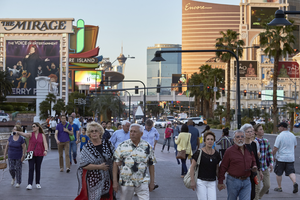
Pedestrian traffic on Las Vegas Boulevard, Las Vegas, Nevada: digital photograph
Date
Archival Collection
Description
Image

